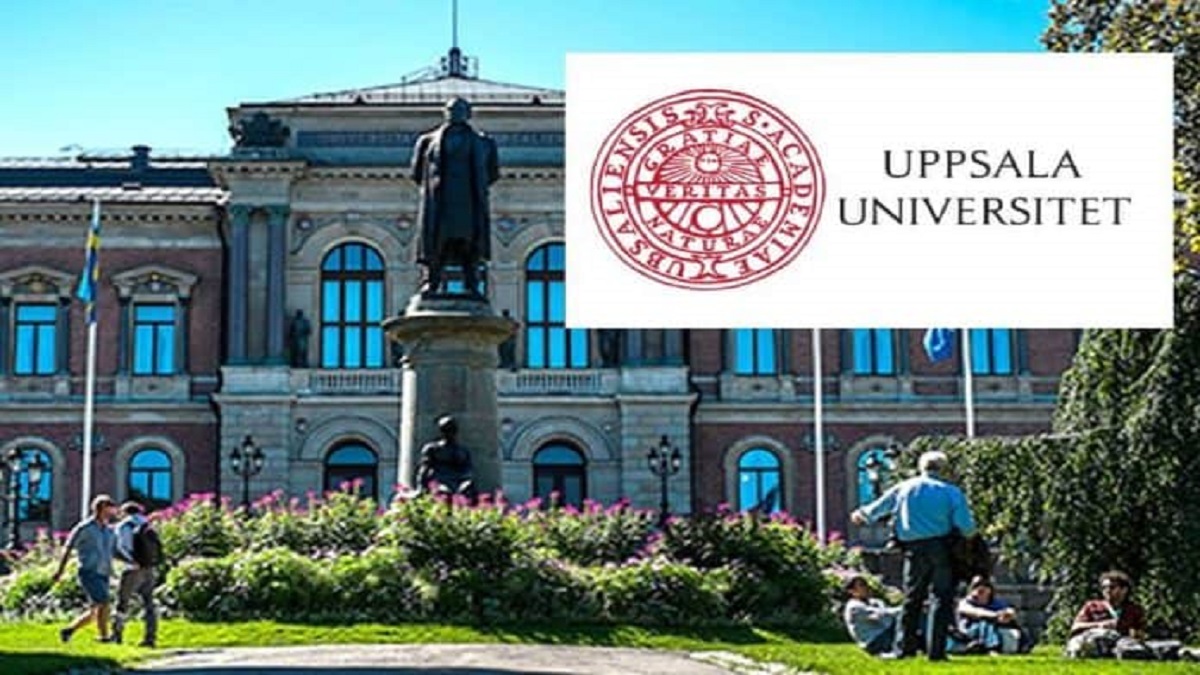
Uppsala University is a comprehensive research-intensive university with a strong international standing. Our ultimate goal is to conduct education and research of the highest quality and relevance to make a long-term difference in society. Our most important assets are all the individuals whose curiosity and dedication make Uppsala University one of Sweden’s most exciting workplaces. Uppsala University has over 54,000 students, more than 7,500 employees and a turnover of around SEK 8 billion.
The Department of Organismal Biology teaches and explores the evolution, development and function on the organismal level. For more information see www.iob.uu.se.
The position is placed in the research group of Fabien Burki (https://www.burki-lab.net/) within the Systematic Biology program at the Department of Organismal Biology (Evolutionary Biology Center, Uppsala University). In the Burki lab, we study the broad diversity of eukaryotes, which is mainly microbial, to understand some of the main transitions in broad eukaryote evolution such as the origin of plastids.
Read more about our benefits and what it is like to work at Uppsala University
Project description
The Burki lab was recently awarded an ERC Consolidator grant (PlastidOrigin) that aims to study one of the most transformative events in eukaryote evolution–the origin of the photosynthetic organelles (the primary plastids). The main aims of this PhD position are to study the roles of genetic transfers in the integration of an endosymbiont into an organelle. For this we will study the lineage Paulinella–a lineage of amoebae (unicellular eukaryotes) that established primary plastids relatively recently. While most of the research on Paulinella has been done on the photosynthetic species, i.e. the species that diverged after the establishment of plastids, we will instead look at the heterotrophic species that diverged close but before plastid establishment to test the hypothesis that gene transfers facilitating the endosymbiotic integration occurred before the establishment of the plastids from varying food sources. A suite of methods will be employed, including long-read metabarcoding, transcriptomics, phylogenomics, cultivation, microscopy.
Duties
The position involves lab work and bioinformatics. Lab work includes: field trips, sampling, cell isolation, imaging with advanced microscopy, attempts for cultivation of interesting cells in enrichment cultures, and library preparation for metabarcoding and HTS sequencing. Bioinformatics includes analysis of diversity datasets, phylogenetics, analysis of transcriptomic datasets, gene-tree species tree reconciliation. Disseminate results in appropriate formats, including leading peer-reviewed publications and conferences. Training will be provided when necessary.
Requirements
Completed university education of 240 university points (högskolepoäng, hp) out of which 60 hp on advanced level corresponding to master degree in relevant field to the project. The selected candidate must possess expertise and knowledge in microbial sampling as well as identifying and handling protist cells. Experience in culturing of microbial eukaryotes is required. Background in eukaryotic diversity will be seen as highly valuable. A suite of methodologies will be used as described in the project description and are desirable attributes of the candidate. In particular, proven expertise in bioinformatics (e.g. phylogeny, genomics) and use of a scripting language (Python, R) are essential. Great emphasis is placed on personal qualities such as high-motivation, planning and organizational skills, problem solving and good collaborations and communication skills with team-members and other researchers. The applicant must have documented experience and proficiency in oral and written presentation in English.
Additional qualifications
In filling this position, the university aims to recruit the person who, in the combined evaluation of competence, skills and documented qualifications, is judged most suitable to carry out and develop the work-in-hand and to contribute to a positive development of the department.
Position
The PhD-student position is a 4-year appointment, and the candidate will primarily devote the time to his/her own research studies. Other departmental work, such as teaching or administration are typically part of the position (maximum 20 %). Salary placement is in accordance with local guidelines at Uppsala University. The applicant must be eligible for PhD studies at Uppsala University.
Information about research education can be found at the web site of the Faculty of Science and Technology, http://www.teknat.uu.se/Doktorand/.
Rules governing PhD students are set out in the Higher Education Ordinance chapter 5, §§ 1-7 and in Uppsala University’s rules and guidelines.
About the employment
The employment is a temporary position according to the Higher Education Ordinance chapter 5 § 7. Scope of employment 100 %. Starting date 2023-01-01 or as agreed. Placement: Uppsala
For further information about the position, please contact: Dr. Fabien Burki; fabien.burki@ebc.uu.se.
Please submit your application by 17th of October 2022, UFV-PA 2022/3359.
Are you considering moving to Sweden to work at Uppsala University? Find out more about what it´s like to work and live in Sweden.
Please do not send offers of recruitment or advertising services.
Submit your application through Uppsala University’s recruitment system.
Placement: Department of Organismal Biology
Type of employment: Full time , Temporary position longer than 6 months
Pay: Fixed salary
Number of positions: 1
Working hours: 100 %
Town: Uppsala
County: Uppsala län
Country: Sweden
Union representative: ST/TCO tco@fackorg.uu.se
Seko Universitetsklubben seko@uadm.uu.se
Saco-rådet saco@uadm.uu.se
Number of reference: UFV-PA 2022/3359
Last application date: 2022-10-17




